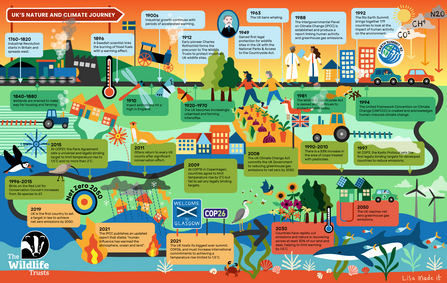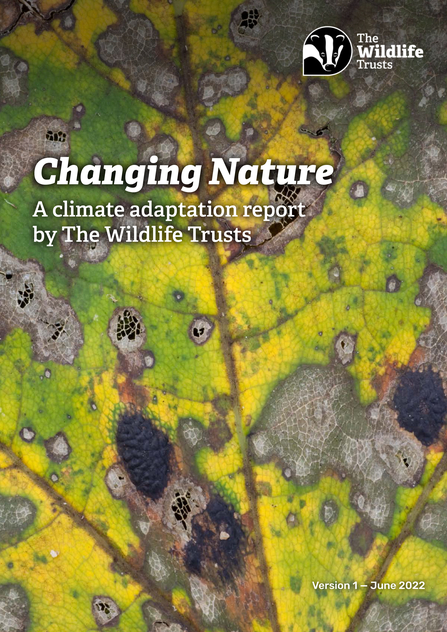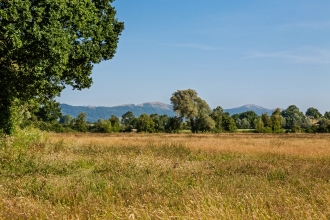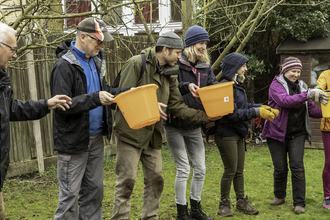We are in the midst of a climate crisis and an ecological crisis but these crises aren’t separate: they are closely inter-linked. Climate change is one of the greatest threats to nature and people in the UK and around the world, and the destruction of natural habitats is exacerbating the impacts of climate change. The silver lining of this giant cloud is that if we restore nature, we can help to reverse the ecological crisis whilst also helping to mitigate and adapt to climate change.
Changing Nature
Hill Court Farm by Paul Lane

Climate change is happening. Global temperatures are already 1.1°C higher today than they were before the industrial revolution only a couple of hundred years ago – and that’s an average, in some areas the increase is far higher. We are seeing more extreme weather and events such as heatwaves, droughts, wildfires, storms and floods. In Worcestershire, we’ve seen more flooding on our nature reserves, unpredictable blossom timing in our orchards and difficult conditions for sowing seed mixtures for pollinators and birds. Changes like this are making life harder for our already beleaguered wildlife.
Every reduction we make to greenhouse gas emissions means a reduction in the damage caused by climate change and results in less risk of crossing dangerous tipping points. Even if we meet the emissions reduction targets in the Paris agreement, we will see further changes in our climate due to the greenhouse gases that have already been emitted and that will be emitted in the next few years. So, as well as rapidly and thoroughly reducing emissions to limit the impacts, we need to adapt to the changes we know are coming. A major new report published by The Wildlife Trusts highlights the various risks posed by climate change to wildlife in the UK and gives a list of actions for how we can adapt to them.
Adapting to climate change will require many societal and economic changes but restoring nature and making use of nature-based solutions will play a crucial part. Examples of nature-based solutions include restoring peatlands and creating woodland to sequester carbon and mitigate climate change; making use of natural flood management methods and restoring floodplains to manage flood risk; regenerative and agroecological farming practices to ensure food security; and making our towns and cities greener and better connected to nature for health and wellbeing.
Climate change is contributing more and more to nature’s decline with devastating consequences for people and wildlife. We are already stepping-up our efforts to restore habitats so that they benefit wildlife and are better able to store carbon.director of climate change and evidence for The Wildlife Trusts
Together with colleagues in Wildlife Trusts across the country, we're working hard to help wildlife and to mitigate that worst impacts of our changing climate. The Wildlife Trusts’ vision is based on three main goals:
- Nature Recovery. To help with the climate crisis, nature needs to be protected and allowed to recover. The Wildlife Trusts are calling for at least 30% of land and sea to be actively managed for nature recovery in the UK. This will allow wildlife to become more abundant, ecosystems to become more intact and natural processes to function at greater scales.
- Meaningful action. Nature recovery we will need people power. We hope to engage and empower individuals and communities to take meaningful action to support wildlife and enable nature to recover at local, regional and national levels.
- Nature-based solutions. Functioning ecosystems can provide many benefits, including storing carbon, improving soil fertility, reducing flooding and erosion, pollinating crops and providing healthy places to exercise and relax. Nature-based solutions will be crucial for adapting to climate change and creating sustainable societies.
Read more about how the Wildlife Trust movement is combatting the climate and nature emergencies.




